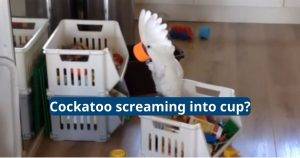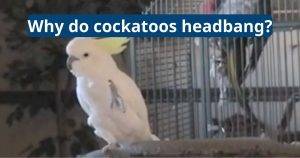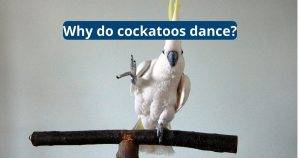Umbrella Cockatoo Lifespan

Umbrella cockatoos are intelligent birds that require mental stimulation on a daily basis. They are also prone to picking at their feathers and getting depressed, so it’s important that they get plenty of attention. In the wild, umbrella cockatoos live in flocks with up to 15 birds. They are also social animals, so they love to play and interact with their owners.
Age at maturity
Umbrella cockatoos (Cacatua alba) can begin breeding at about three years of age. Young birds should be well socialized and exposed to new situations such as travel, toys and visits to the veterinarian. Hand-reared youngsters need to be fed a high-quality bird formula that is relatively low in fat. This helps to avoid overfeeding, which can lead to obesity in these beautiful birds.
When a cockatoo is excited, agitated or scared, its long white crest feathers spread out to resemble an umbrella. This is a display that serves as a form of communication with other cockatoos and is used to attract females for mating.
In the wild, umbrella cockatoos are found on the islands of Halmahera, Bacan, Ternate, Kasiruta, Tidore and Mandioli in the northern Maluku province of Indonesia. They inhabit lowland forests, particularly mature canopy forest along rivers, and also frequent cleared lands. They feed on a variety of seeds, berries and roots. In captivity, umbrella cockatoos have been known to live up to 60 years.

Breeding
Umbrella cockatoos, scientifically known as Cacatua alba, are among the cockatoo species with an extraordinary lifespan. According to some zoos, umbrella cockatoos can live up to 60 years in captivity, although this number likely is a decade shorter for birds in the wild. There are even reports of umbrella cockatoos who lived beyond 100 years, with Duster the cockatoo being claimed to have celebrated his 89th birthday in 2014.
In the wild, these large birds spend their time foraging for nuts and seeds. They also enjoy eating berries and other fruits, but avocados and citrus fruits should not be fed to umbrella cockatoos as they are toxic.
They are highly active and need a lot of structured playtime to keep them mentally and physically stimulated. Ensure they have enough room in their cage to perform these activities as well as a secluded outdoor play area where they can chew on wood blocks or branches and stretch their powerful beaks.

Diet
Umbrella cockatoos spend the majority of their time in the wild searching for food. Their diet is primarily nuts, seeds and fruit, but they also eat coconut shards and grain crops grown by farmers.
A seed-only diet lacks important nutrients and vitamins. About 20% of your bird’s diet should consist of legumes, cereals and vegetables. You can provide these foods by soaking, cooking or sprouting them. Fresh fruits and vegetables should be served sparingly; they are high in sugar and can affect your cockatoo’s appetite and mood.
Do not feed your cockatoo avocados; they contain persin, a toxin that can cause respiratory distress and heart problems. Citrus fruits should also be avoided, as they are too acidic for your cockatoo.
Though they are easily trainable, umbrella cockatoos can become aggressive if over-stimulated or neglected. They can communicate their feelings with a variety of vocalizations, including screeching and screaming. They are known to ruffle their feathers, spread their wings and erect their head crest as a display of courtship or aggression.

Care
Umbrella cockatoos are affectionate, loving birds that form strong bonds with their caretakers. They are also highly intelligent and curious. They will often learn to manipulate their owners, so it is important to set limits and teach them obedience.
These birds are diurnal and require 10 to 12 hours of uninterrupted sleep every night. They also need a lot of mental stimulation. They can become aggressive or destructive if they are bored. They can also start plucking their feathers or self-mutilate if they are stressed.
Cockatoos should be fed a diet that is high in fiber and antioxidants. They should also be given puzzle toys to keep them active and entertained. It is also recommended to rotate their toys frequently so they don’t get bored with them. Make sure their cage is well-ventilated and that there are no drafts. They should also be given a bath to reduce their powdery down, which is naturally emitted.



